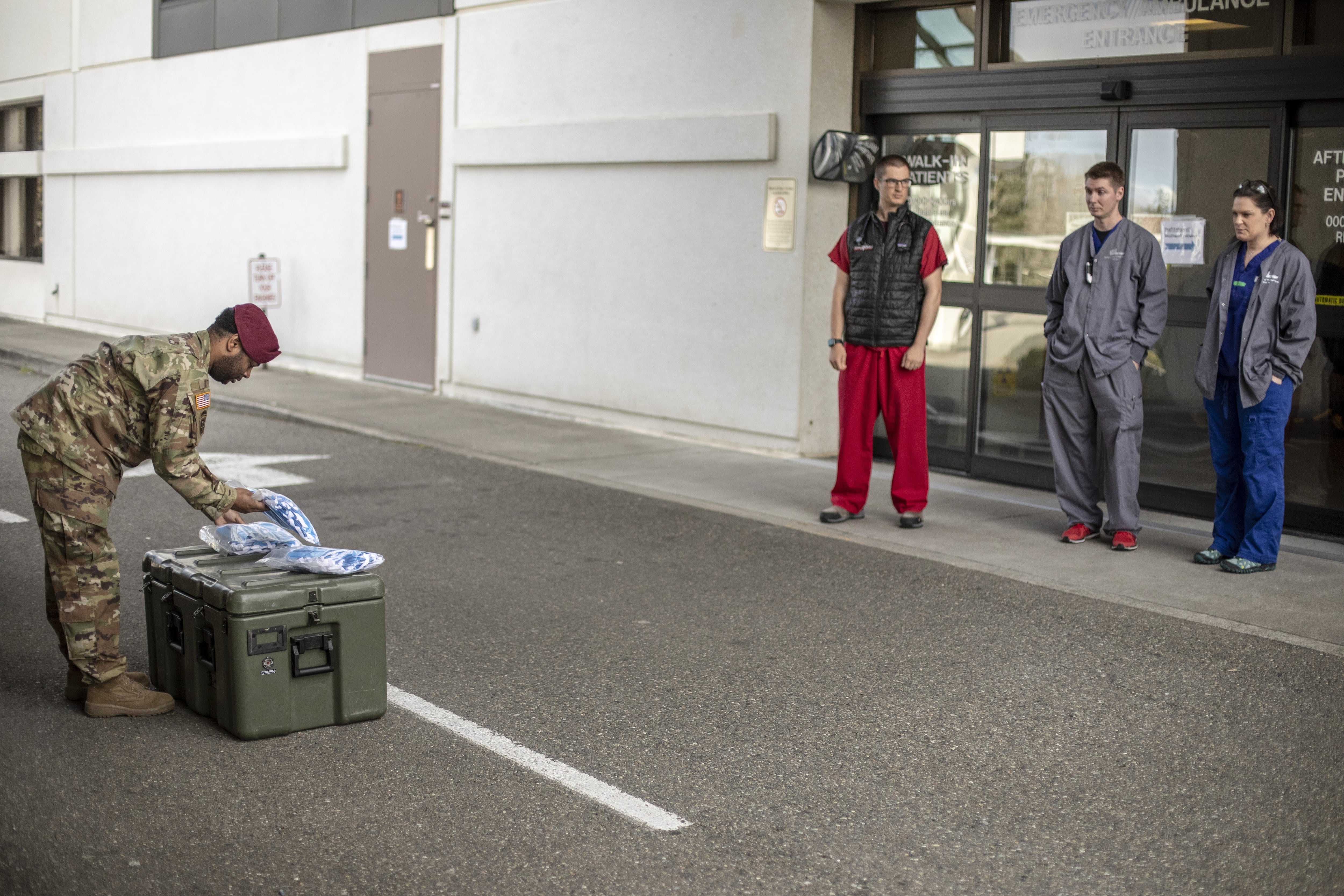Parachute riggers at Joint Base Lewis-McChord, Washington, plan to sew 1,000 to 1,500 surgical masks per week to help patients afflicted with COVID-19, the respiratory illness caused by the novel coronavirus.
Before the Pentagon issued guidance to stop reporting COVID-19 case numbers at individual military bases, there were six confirmed cases at JBLM, according to local media.
Though numbers are no longer available at JBLM itself, the number of cases in the surrounding counties has trended into the thousands. And with new Pentagon orders directing troops to start wearing face coverings in public, increasing mask production could come in handy at JBLM and other Army installations.
Soldiers from the support battalion for 1st Special Forces Group created 300 surgical masks for Madigan Army Medical Center and its regional partners as of April 2, as well as prototypes of reusable respirator masks and face shields, according to an Army news release.

“The most likely application [of the masks] will be to have a symptomatic patient, one with a cough, sneezing, shortness of breath, wear the mask in order to reduce the amount of respiratory droplets contaminating the environment," said 1st Group surgeon Col. Rodd E. Marcum in the release.
The plan is to produce 200 masks per day using five sewing machines, said 1st Group commander Lt. Col. Christopher S. Jones in the release.
“We’ll get better by week’s end and be able to produce 1,000 to 1,500 during a normal work week,” Jones said last week.
The sewing machines used by the riggers are usually used to repair parachutes, but with some input and feedback from hospital employees, riggers have been able to churn out medical protective equipment as well.
As of Sunday, there were nearly 700 cases in the surrounding county, according to the local health department. JBLM also sits just south of King County, which includes the city of Seattle, and where there are more than 3,000 cases.
Seattle has been one of the hardest hit cities in the country. An Army medical team set up a field hospital in the CenturyLink Center there to help treat non-COVID-19 patients that local hospitals cannot accept.
Kyle Rempfer was an editor and reporter who has covered combat operations, criminal cases, foreign military assistance and training accidents. Before entering journalism, Kyle served in U.S. Air Force Special Tactics and deployed in 2014 to Paktika Province, Afghanistan, and Baghdad, Iraq.




